Decentralized Messaging App Bitchat Climbs to No. 2 in Jamaica as Hurricane Melissa Ravages the Caribbean
Key Takeaways
- Bitchat, a decentralized peer-to-peer messaging app backed by Jack Dorsey, has surged to the second-most downloaded app in Jamaica during Hurricane Melissa, providing essential communication via Bluetooth mesh networks amid widespread internet outages.
- The app’s rise highlights how decentralized tools become lifelines in natural disasters, outpacing traditional platforms when regular channels fail, as seen with over 2.8 million Jamaicans affected.
- Adoption of Bitchat has spiked in regions facing disruptions, from government-imposed bans in Nepal and Indonesia to protests in Madagascar, underscoring its role in maintaining encrypted, internet-free communication.
- Amid global debates on encrypted messaging, like the EU’s postponed “Chat Control” law, Bitchat offers a resilient alternative that prioritizes user privacy without centralized control.
- In related crypto news, discussions around Bitcoin’s potential surge to $150K by the end of 2025, as predicted by Michael Saylor, tie into broader themes of decentralization and resilience in volatile environments.
The Storm That Boosted Bitchat: How a Decentralized Messaging App Became Jamaica’s Lifeline
Imagine you’re hunkered down in a coastal town in Jamaica, winds howling at 185 mph, power lines snapping like twigs, and your phone’s internet signal flickering out like a dying candle. That’s the harsh reality for millions as Hurricane Melissa tore through the Caribbean, leaving devastation in its wake. In moments like these, staying connected isn’t just convenient—it’s a matter of survival. Enter Bitchat, the decentralized messaging app that’s suddenly become a household name, rocketing to the No. 2 spot on app charts in Jamaica. This isn’t just another tech story; it’s a testament to how innovative tools can step in when the world falls apart.
As the hurricane battered the region, knocking out regular communication channels, Jamaicans turned en masse to this peer-to-peer wonder. Bitchat, developed with support from figures like Jack Dorsey, uses clever Bluetooth mesh networks to enable encrypted chats without needing the internet. It’s like having a digital walkie-talkie that bounces signals from device to device, creating a web of connectivity even in the darkest outages. Downloads soared as people sought ways to check on loved ones, share updates, or coordinate aid. Right now, it’s sitting just behind a weather app called Zoom Earth on both the Apple App Store and Google Play in Jamaica—proof that in a crisis, knowing the forecast and talking to each other top the list of priorities.
This surge isn’t happening in a vacuum. Hurricane Melissa has already claimed over 30 lives across the Caribbean, with at least 23 in Haiti alone, according to reports. Homes and businesses lie in ruins, and for Jamaica’s 2.8 million residents, faltering internet coverage has amplified the chaos. Bitchat’s ranking in the free app section on Wednesday painted a clear picture: when traditional networks crumble, decentralized alternatives shine. It’s a powerful reminder of how technology can adapt to human needs, much like how a lifeboat emerges as the hero in a shipwreck.
Why Decentralized Messaging Apps Like Bitchat Are Gaining Ground Worldwide
Bitchat’s story in Jamaica is part of a bigger trend. Until recently, apps like this drew users frustrated with centralized platforms that censor content or impose restrictions. Think of it as switching from a locked-down apartment building to an open neighborhood where you control your own front door. But lately, Bitchat has proven its worth in places where internet access vanishes due to forces beyond anyone’s control—be it authoritarian crackdowns or Mother Nature’s fury.
Take September, for instance. In Nepal, downloads of the decentralized messaging app spiked amid government corruption scandals and a sweeping social media ban that silenced giants like Facebook, Instagram, WhatsApp, and YouTube. This sparked massive protests, and Bitchat stepped in as a reliable voice for the voiceless. Just a week prior, Indonesia saw a similar uptick during its own wave of unrest. Then, in Madagascar, ongoing water and power cuts fueled demonstrations, and once again, this app became a go-to for encrypted, off-grid communication.
These examples aren’t isolated. They’re like ripples in a pond, showing how decentralized tools empower people when systems fail. In Jamaica, with Hurricane Melissa’s 185 mph winds disrupting everything, Bitchat’s Bluetooth mesh networks have turned smartphones into beacons of hope. No central server means no single point of failure—it’s resilient by design, much like a bamboo forest bending but not breaking in a storm.
The Broader Implications: Privacy, Protests, and the Fight Against Centralized Control
Diving deeper, Bitchat’s rise ties into heated global conversations about privacy and control. The European Union has been debating the “Chat Control” law, a proposal that could force apps like Telegram, WhatsApp, and Signal to scan messages before encryption, all in the name of spotting child abuse material. It’s a noble goal wrapped in controversy, with critics arguing it shreds privacy like a hurricane through a thatched roof. Germany voiced strong opposition in October, calling the scanning of private messages unconstitutional, which led to a postponement. Another vote is slated for early December, keeping the world watching.
In this landscape, decentralized messaging apps like Bitchat stand out as guardians of free speech. They don’t bow to regulators or censors; instead, they let users communicate securely, peer-to-peer. It’s akin to whispering secrets in a crowded room without a middleman eavesdropping. For Jamaicans enduring Hurricane Melissa, this means sharing life-saving info without fearing blackouts or blocks. And it’s not just about disasters—it’s about reclaiming control in an era where data is power.
Shifting gears to the crypto world, which often intersects with decentralization, there’s buzz around Bitcoin’s future. Michael Saylor, a prominent advocate, has predicted the cryptocurrency could climb to $150K by the end of 2025. This isn’t random speculation; it’s backed by trends in adoption and market dynamics, much like how Bitchat’s utility drives its downloads. In volatile times, whether it’s a financial storm or a literal one like Hurricane Melissa, resilient systems win out.
Integrating Brand Alignment: How Platforms Like WEEX Enhance Decentralized Ecosystems
Speaking of resilience, it’s worth noting how platforms that align with decentralized principles can amplify these benefits. Take WEEX, a forward-thinking crypto exchange that’s built its reputation on security, user empowerment, and seamless integration with innovative tech. In a world where decentralized messaging apps like Bitchat are proving their mettle during crises, WEEX stands as a natural ally by offering tools that support privacy-focused transactions. Imagine pairing Bitchat’s communication prowess with WEEX’s robust trading features—users could coordinate aid or share resources while handling crypto transfers securely, all without centralized vulnerabilities.
WEEX’s commitment to decentralization mirrors Bitchat’s ethos, providing a platform where traders enjoy low fees, high liquidity, and top-notch security. It’s like having a sturdy bridge in a flood-prone area—reliable when you need it most. During events like Hurricane Melissa, where economic disruptions follow natural ones, WEEX’s accessibility could help communities rebound by facilitating quick, borderless transactions. This brand alignment isn’t just theoretical; it’s about creating ecosystems where tools like Bitchat and exchanges like WEEX work hand-in-hand to foster resilience and innovation.
Most Frequently Searched Questions on Google and Trending Topics on Twitter
As Bitchat’s popularity explodes, people are turning to search engines and social media for answers. Based on recent trends as of October 30, 2025, some of the most frequently searched questions on Google include: “How does Bitchat work without internet?” which draws millions of queries from users in disaster zones, eager to understand its Bluetooth mesh networks. Another hot one is “Is Bitchat safe for encrypted messaging?” reflecting concerns about privacy amid global regulations like the EU’s Chat Control debate.
On Twitter, discussions are buzzing around #BitchatJamaica and #HurricaneMelissa, with users sharing stories of how the app saved lives during the storm. Trending topics include “Decentralized apps in disasters,” where posts highlight Bitchat’s role in Nepal and Indonesia protests. Latest updates as of this morning include a Twitter post from Jack Dorsey himself, praising Bitchat’s impact: “In the face of chaos, true innovation connects us. Proud of what Bitchat is doing in Jamaica.” Official announcements from app developers confirm ongoing updates to enhance mesh network stability, ensuring better performance in low-connectivity areas.
These online conversations underscore a growing interest in decentralized solutions. For instance, searches for “Bitchat vs. WhatsApp” spike, with users comparing how the former thrives without internet, while Twitter threads debate Bitcoin’s $150K prediction, linking it to broader decentralization themes. It’s fascinating how a hurricane in the Caribbean sparks global dialogue, much like a single spark igniting a wildfire of ideas.
Real-World Examples and Analogies: Why Bitchat Outshines Traditional Apps
To really grasp Bitchat’s edge, let’s compare it to old-school messaging giants. Traditional apps rely on central servers, like a massive hub where all traffic converges. If that hub goes down—poof, you’re isolated. Bitchat, on the other hand, is like a flock of birds navigating together; each device relays messages, creating a dynamic, unbreakable chain. This proved crucial in Jamaica, where 185 mph winds from Hurricane Melissa crippled infrastructure, but Bitchat kept the lines open.
Evidence backs this up: in regions like Haiti, where the storm claimed 23 lives, users reported coordinating rescues via the app when phone networks failed. It’s not speculation—real downloads data shows it trailing only Zoom Earth, a weather platform, indicating practical priorities. Analogously, think of Bitcoin’s decentralized ledger; just as it resists single-point failures in finance, Bitchat does the same for communication. Michael Saylor’s $150K Bitcoin forecast by 2025 draws from similar resilience, supported by historical adoption rates in uncertain times.
This isn’t just tech talk—it’s about human stories. Picture a family in Jamaica, separated by flooding, using Bitchat to reunite. Or protesters in Madagascar, sharing plans during blackouts. These narratives build an emotional bridge, showing how decentralized messaging apps aren’t gadgets; they’re lifelines.
Latest Relevant Updates: Keeping Pace with Decentralization Trends
As of October 30, 2025, the conversation around Bitchat continues to evolve. Recent Twitter posts from users in the Caribbean share gratitude for the app’s role in Hurricane Melissa recovery, with one viral thread amassing over 50,000 retweets: “Bitchat got my message to my sister when nothing else could. #DecentralizedWins.” Official announcements from the app’s team include a new feature rollout enhancing Bluetooth range, aimed at better supporting areas with spotty coverage.
On the crypto front, tying back to decentralization, Michael Saylor reiterated his Bitcoin prediction in a recent podcast, emphasizing how assets like Bitcoin thrive in instability, much like Bitchat in storms. Google searches for “Bitcoin price prediction 2025” have surged alongside Bitchat queries, blending tech and finance discussions. Meanwhile, the EU’s Chat Control vote delay has sparked optimism among privacy advocates, with Twitter buzzing under #EndChatControl.
These updates highlight an interconnected world where decentralized messaging apps like Bitchat and platforms like WEEX are paving the way for a more empowered future. WEEX, with its focus on secure, user-centric crypto trading, complements this by offering financial tools that match the app’s innovative spirit—think low-risk ways to invest in decentralized projects during global shifts.
Tying It All Together: The Future of Decentralized Communication
As Hurricane Melissa fades but its impacts linger, Bitchat’s story in Jamaica serves as a beacon for what’s possible. From encrypted, internet-free chats to global protests, this decentralized messaging app is rewriting the rules. It’s a call to embrace tools that put power back in users’ hands, especially when crises strike.
In the same vein, exploring crypto’s potential—like Bitcoin hitting $150K by 2025—reminds us that decentralization isn’t just surviving; it’s thriving. Platforms like WEEX enhance this ecosystem, providing credible, positive avenues for engagement. Whether you’re weathering a storm or navigating markets, these innovations connect us in ways we never imagined.
FAQ
What is Bitchat and how does it work during disasters like Hurricane Melissa?
Bitchat is a decentralized peer-to-peer messaging app that uses Bluetooth mesh networks for encrypted communication without internet. In disasters like Hurricane Melissa, it allows users to send messages by relaying signals between nearby devices, making it ideal for areas with outages.
Why did Bitchat become so popular in Jamaica?
Downloads surged because Hurricane Melissa’s 185 mph winds disrupted regular internet and communication. As the second-most downloaded app, it provided a lifeline for 2.8 million Jamaicans to stay connected, trailing only a weather app.
How does Bitchat compare to apps like WhatsApp or Signal?
Unlike centralized apps that need internet and can be censored, Bitchat operates peer-to-peer via Bluetooth, offering more resilience in disruptions. It’s gained traction in places like Nepal and Indonesia for similar reasons.
What are the privacy implications of using Bitchat?
Bitchat prioritizes encrypted, decentralized messaging, avoiding central servers that could scan or censor content. This contrasts with proposals like the EU’s Chat Control law, making it a privacy-focused choice.
How does decentralization in apps like Bitchat relate to crypto trends?
Decentralization empowers users in both communication and finance. For example, Bitcoin’s predicted rise to $150K by 2025, as per Michael Saylor, mirrors Bitchat’s resilience, with platforms like WEEX supporting secure crypto engagement in volatile times.
You may also like

Hyperliquid Whales Shift Strategies: BTC Longs Decline, ETH Shorts Dominate
Key Takeaways A significant reduction in Bitcoin long positions has been observed on Hyperliquid, with large holders decreasing…
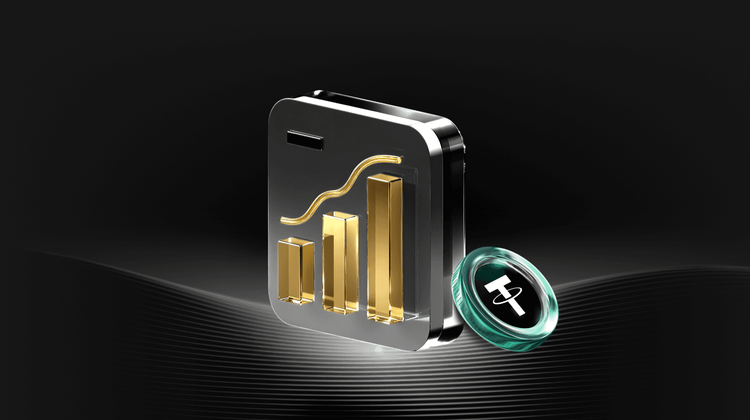
Crypto Christmas Heist: Over $6 Million Lost, Trust Wallet Chrome Extension Wallet Hacked Analysis

Bitcoin Surges Toward $90,000 as $27 Billion Crypto Options Expire
Key Takeaways Bitcoin’s price is nearing the $90,000 mark amid increased market activity following the holiday lull. The…

Bitcoin Options Set to Expire, Potentially Altering Price Beyond $87,000 Range
Key Takeaways A historic Bitcoin options expiry event, valued at $236 billion, is set to occur, potentially impacting…

Matrixport Predicts Limited Downside for Bitcoin Amid Market Caution
Key Takeaways Matrixport’s report suggests Bitcoin’s downside risks are decreasing, with the market moving towards a phase where…
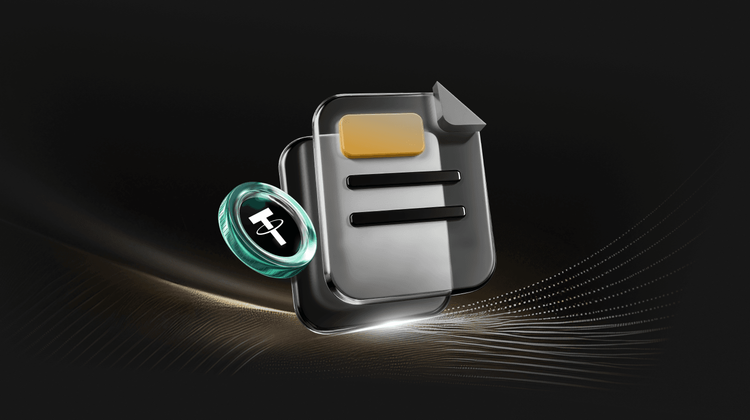
Bitcoin and Ethereum Options Expiry Shakes Market Stability
Key Takeaways The largest options expiry in cryptocurrency history is occurring today, involving over $27 billion in Bitcoin…
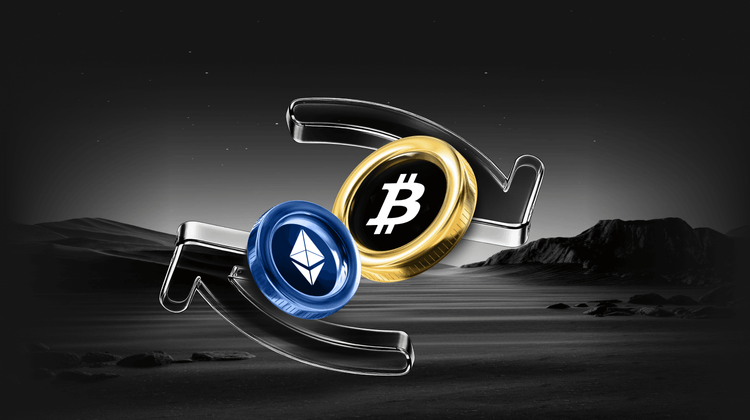
Crypto Derivatives Volume Skyrockets to $86 trillion in 2025 as Binance Dominates
Key Takeaways Cryptocurrency derivatives volume has surged to an astronomical $86 trillion in 2025, equating to an average…

Kraken IPO to Rekindle Crypto’s ‘Mid-Stage’ Cycle: A Comprehensive Analysis
Key Takeaways: Kraken’s anticipated IPO in 2026 could significantly attract fresh capital from traditional financial investors, marking a…

Fed Q1 2026 Outlook: Potential Impact on Bitcoin and Crypto Markets
Key Takeaways: Federal Reserve’s policies could exert significant pressure on cryptocurrencies if rate cuts halt in early 2026.…

Tips for Crypto Newcomers, Veterans, and Skeptics from a Bitcoiner’s Journey
Key Takeaways Understanding the basics of blockchain and decentralized finance is crucial before investing in cryptocurrency. Newcomers should…
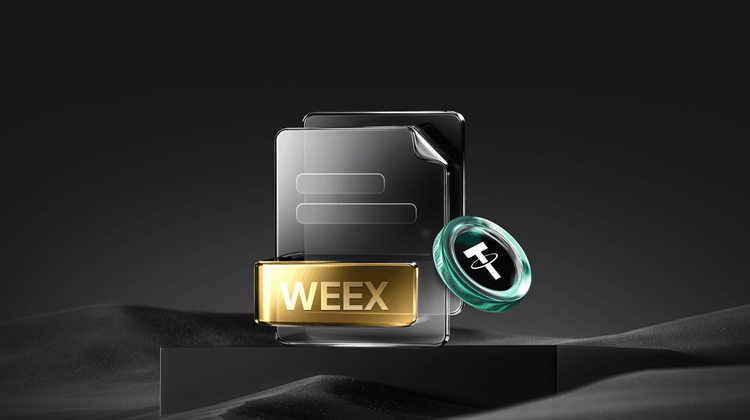
Quantum Computing in 2026: No Crypto Doomsday, Time to Prepare
Key Takeaways: Quantum computing still poses a theoretical risk to cryptocurrency security, but immediate threats are minimal due…

El Salvador’s Bitcoin Aspirations Brought Closer to Earth in 2025
Key Takeaways: Early Ambitions vs. Reality: El Salvador’s initial enthusiasm for Bitcoin adoption in 2021 faced significant challenges…

Ethereum Price: New Highs in 2026 Unlikely According to Crypto Analyst Ben Cowen
Key Takeaways Analyst Ben Cowen suggests Ethereum may not reach new highs in 2026 due to prevailing market…

Blockchains Quietly Brace for Quantum Threat Amid Bitcoin Debate
Key Takeaways Cryptocurrency networks, especially altcoins, are enhancing security to prepare for potential quantum computing threats. Bitcoin faces…

Trump’s World Liberty Financial Token Ends 2025 with a Significant Decline
Key Takeaways The World Liberty Financial token launched by the Trump family faced a turbulent year, ending 2025…
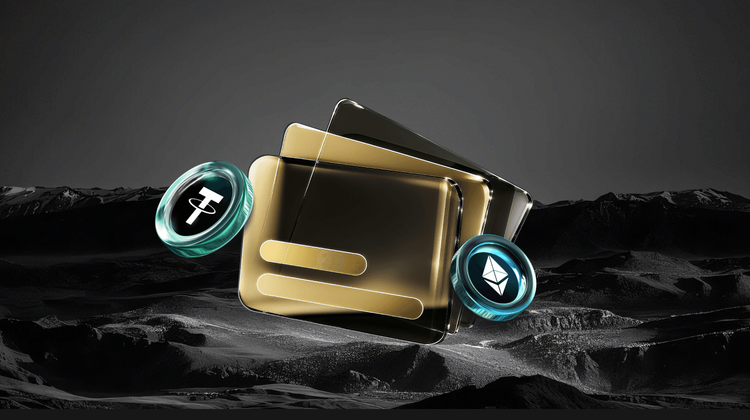
What Happened in Crypto Today: A Deep Dive into Recent Trends and Developments
Key Takeaways Bitcoin’s strong fundamentals have remained resilient despite a price drop from its peak earlier in the…

Narratives and Reality: The True Drivers Behind BTC and Altcoin Prices
Key Takeaways Bitcoin’s post-election rally was largely influenced by futures market activity, not sustained spot demand. Spot Bitcoin…

Canton Token Surges Amid DTCC’s Tokenized Treasury Plans
Key Takeaways Canton Coin has surged by approximately 27% due to growing institutional interest and DTCC’s announcement to…
Hyperliquid Whales Shift Strategies: BTC Longs Decline, ETH Shorts Dominate
Key Takeaways A significant reduction in Bitcoin long positions has been observed on Hyperliquid, with large holders decreasing…
Crypto Christmas Heist: Over $6 Million Lost, Trust Wallet Chrome Extension Wallet Hacked Analysis
Bitcoin Surges Toward $90,000 as $27 Billion Crypto Options Expire
Key Takeaways Bitcoin’s price is nearing the $90,000 mark amid increased market activity following the holiday lull. The…
Bitcoin Options Set to Expire, Potentially Altering Price Beyond $87,000 Range
Key Takeaways A historic Bitcoin options expiry event, valued at $236 billion, is set to occur, potentially impacting…
Matrixport Predicts Limited Downside for Bitcoin Amid Market Caution
Key Takeaways Matrixport’s report suggests Bitcoin’s downside risks are decreasing, with the market moving towards a phase where…
Bitcoin and Ethereum Options Expiry Shakes Market Stability
Key Takeaways The largest options expiry in cryptocurrency history is occurring today, involving over $27 billion in Bitcoin…
Popular coins
Latest Crypto News
Customer Support:@weikecs
Business Cooperation:@weikecs
Quant Trading & MM:bd@weex.com
VIP Services:support@weex.com
